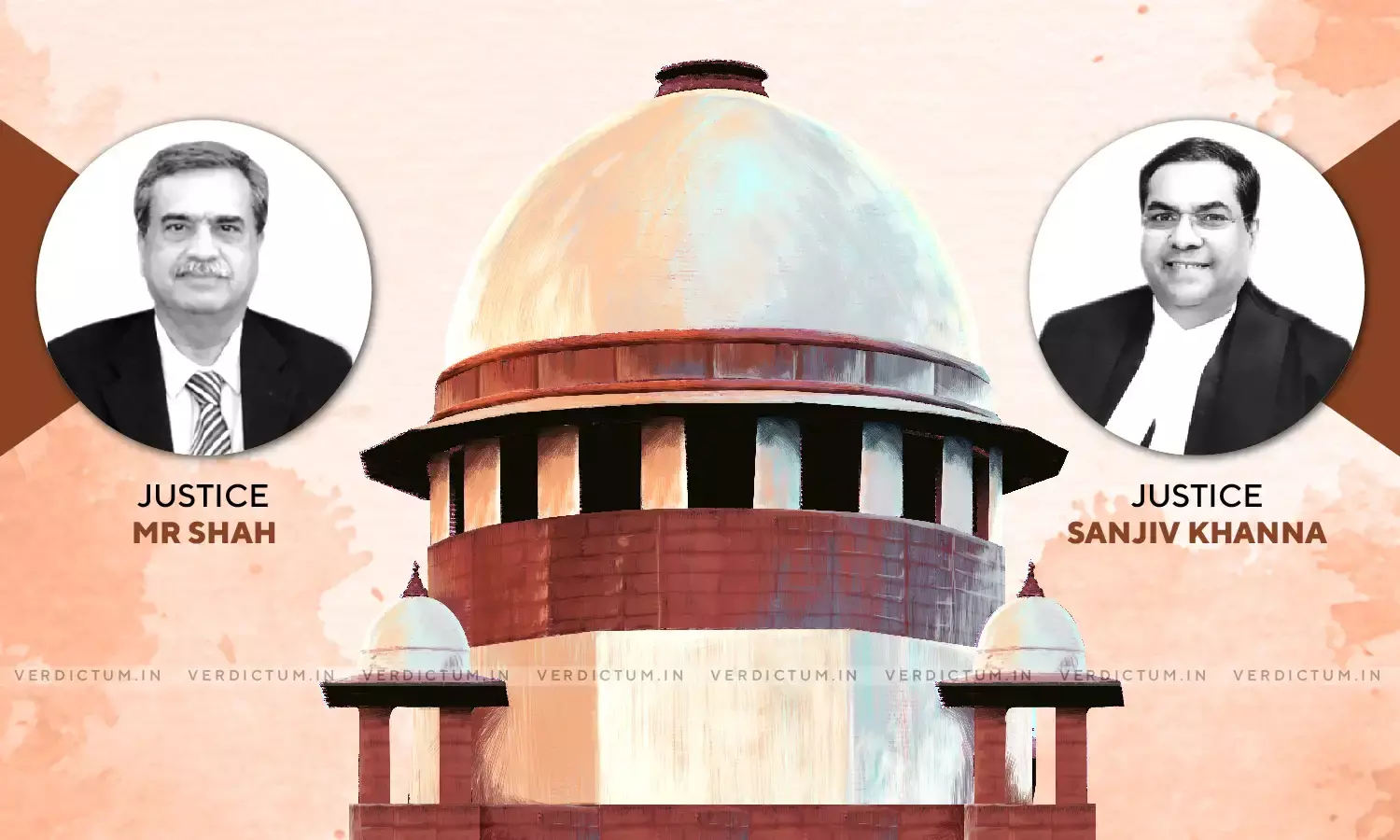High Court Has No Jurisdiction To Interfere With Government Policies In The Form Of MACP Scheme - Supreme Court

The Supreme Court bench comprising of Justice M. R. Shah and Justice Sanjiv Khanna has held that High Court has no jurisdiction to interfere with the Government policies in the form of Modified Assured Career Progression Scheme (MACP).
In this context, the Bench opined -
"It is further observed that therefore the High Court has no jurisdiction to interfere with the Government policies in the form of MACP Scheme which was after accepting the Sixth Central Pay Commission."
In this case, Respondents 1 and 2 were appointed as Assistant Enforcement Officers (AEO) in the year 1976 and 1977 respectively. In the year 2009 the Government of India – Ministry of Personnel, Public Grievance and Pensions (Department of Personnel and Training) notified the MACP Scheme for the Central Government Civilian Employees. The scheme provided that upon the implementation of the Sixth CPC's recommendations, grade pay of Rs. 5,400 is now in two pay bands viz., PB-2 and PB-3. It further provided that the grade pay of Rs.5400 in PB2 and Rs.5400 in PB3 shall be treated as separate grade pays for the purpose of grant of upgradations under the MACP Scheme.
It so happened that while granting the third financial upgradation, the private Respondents and others were granted the grade pay of Rs. 6,600 for PB-3 under MACP Scheme though as per clause PB-3 carried the grade pay of Rs. 5,400. On objection being raised by the Audit Department, their grade pay was corrected. Respondents No. 1 and 2 aggrieved approached the Central Administrative Tribunal and prayed to continue the GP of Rs. 6,600. The tribunal dismissed the original application.
Feeling aggrieved and dissatisfied with the judgment of the Central Administrative Tribunal the Respondents 1 and 2 approached the High Court. The High Court allowed the petition by observing that the next promotion post of Assistant Director which is in the PB3 would be that of Deputy Director which carries a grade pay of Rs.6600, when the third financial upgradation is due to an employee, it has to be of the next promotional post in the hierarchy as per the Recruitment Rules. Aggrieved and dissatisfied by the judgment of the High Court the department approached the Supreme Court.
The Supreme Court observed, "On considering the relevant clauses of the MACP Scheme, it appears that the MACP Scheme envisages placement in the immediate next higher grade pay in the hierarchy of the recommended revised pay bands and grade pay as given in Section 1, Part A of the First Schedule of the CCS (Revised Pay) Rules, 2008. Thus, the High Court has committed a grave error in allowing the grade pay of Rs.6600 the grade pay which was available to the next promotional post as Deputy Director."
It was also observed by the apex court that, "As observed and held by this Court in the case of M.V. Mohanan Nair (supra) the ACP which is now superseded by MACP Scheme is a matter of Government policy and interfering with the recommendations of the expert body like the pay commission and its recommendations for the MACP Scheme would have serious impact on the public exchequer."
The bench while quashing the order of the High Court also observed that, "the view which we are taking is on the premise that neither the MACP Scheme nor Clause 8.1 is under challenge and as per the law laid down by this Court in M.V. Mohanan Nair, an employee is entitled to the higher grade pay as provided under MACP Scheme, more particularly, as per Section 1, Part A of the First Schedule of the CCS (Revised Pay) Rules, 2008. Therefore, so long as Clause 8.1 and the grade pay mentioned as per Section 1, Part A of the First Schedule of the CCS (Revised Pay) Rules, 2008 stands, the employee shall be entitled to the grade pay accordingly."
Accordingly, the Court set aside and quashed the impugned judgment of the High Court and restored the order of the CAT and allowed the appeal.

